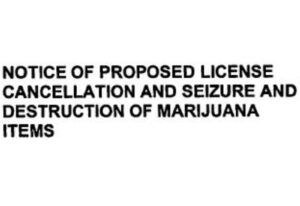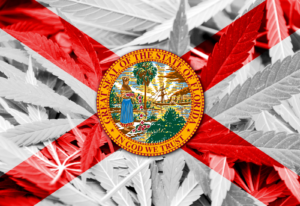This week, the SAFE Banking Act’s long-awaited reintroduction finally happened, and by a bipartisan group of over 100 members of the House and 30 members of the Senate (and counting!). The legislation was first introduced in March 2019, and we’ve followed along ever since. This Act has now been passed by the House THREE times, most recently in the fall of 2019. At that time, it showed some promise but ultimately remained pending before the Senate Banking Committee indefinitely. Now that there appears to more bipartisan support than ever, and with renewed calls for change by the American Bankers Association, the Credit Union National Association and other prominent voices in the industry, 2021 may finally be the year we see the SAFE Banking Act turn into law.
In case you need a refresher, the SAFE Banking Act aims to create a safe harbor for banks and credit unions so they cannot be held liable or subject to federal forfeiture action for providing financial services to a cannabis-related business. Under the Act, federal banking regulators cannot:
- Terminate or limit the deposit insurance or share insurance of a depository institution solely because the institution provides financial services to a cannabis-related business;
- Prohibit or discourage an institution from offering financial services to a cannabis-related business;
- Recommend or otherwise encourage an institution not to offer financial services to an account holder solely because the account holder is affiliated with a cannabis-related business; and
- Take any adverse or corrective action on a loan made to a person solely because the person either owns a cannabis-related business or owns real estate or equipment leased to a cannabis-related business.
As we’ve discussed in previous posts, many see this legislation as insufficient reform, but at least bridging a critical gap that has been created by the conflict between federal and state law. Then Treasury Secretary Steven Mnuchin’s voiced concerns come to mind, especially his noting that the IRS had had to build enormous “cash rooms” for the taxes paid by state-legal businesses. Perhaps more importantly, it would alleviate intense safety and security concerns, which Senator Jeff Merkley puts well in his press release:
“No one working in a store or behind a register should have to worry about experiencing a traumatic robbery at any moment,” said Merkley. “That means we can’t keep forcing legal cannabis businesses to operate entirely in cash—a nonsensical rule that is an open invitation to robbery and money laundering. Let’s make 2021 the year that we get this bill signed into law so we can ensure that all legal cannabis businesses have access to the financial services they need to help keep their employees safe.”
To drive the point home, the press release contains a link to a news article describing the fatal shooting of a budtender in December. OLCC data similarly indicates Portland dispensaries were robbed, burglarized, or looted over 100 times in 2020.
We’ll continue to monitor the status of the SAFE Banking Act and other cannabis-related legislation on the federal and state level throughout this year. Here’s hoping it’s a good one for much needed reform.
























